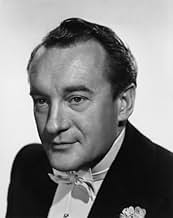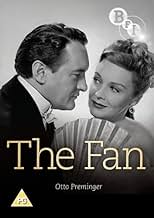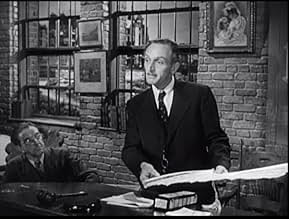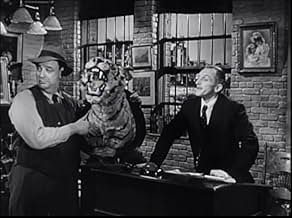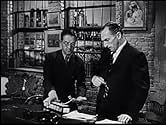Agrega una trama en tu idiomaAdventuress Mrs. Erlynne hopes to succeed in London's high society and seeks Lord Windermere's help. His wife Margaret is not amused but is herself courted by Lord Darlington and forgets her... Leer todoAdventuress Mrs. Erlynne hopes to succeed in London's high society and seeks Lord Windermere's help. His wife Margaret is not amused but is herself courted by Lord Darlington and forgets her fan in his home after a clandestine meeting.Adventuress Mrs. Erlynne hopes to succeed in London's high society and seeks Lord Windermere's help. His wife Margaret is not amused but is herself courted by Lord Darlington and forgets her fan in his home after a clandestine meeting.
- Dirección
- Guionistas
- Elenco
- Alphonse - Philippe's Assistant
- (sin créditos)
- Hoskins
- (sin créditos)
- Simpson the Tailor
- (sin créditos)
- American Girl
- (sin créditos)
- The Jeweler
- (sin créditos)
- Maid
- (sin créditos)
- Messenger
- (sin créditos)
- Philippe
- (sin créditos)
Opiniones destacadas
At an auction selling objects from bombed buildings Lady Erlynne (Madeline Carroll) attempts to reclaim a fan given her decades earlier. The auctioneer is reluctant to part with it on her say so unless she can find a witness. She goes and looks up "cad from the past" Lord Darlington (George Sanders) to vouch for her and after an initial re-buff the two recall the bell époque together and how his deviousness almost ended a marriage while her sacrifice saved it.
Preminger seamlessly injects the war as a catalyst to springboard the play as well as add a sly touch that reveals itself comically at the end. With his ability to speak film language as well as anyone The Fan flows with long takes and fine performances by the principals Carroll, Jean Crain, Richard Greene and George Sanders who seemed born to play Wilde characters.
The Fan is one well crafted work that Preminger elevates by eschewing the easy task of filming a classic stage satire and adding a stark but unobtrusive contemporary sub plot that not only advances the storyline but in the true spirit of Wilde pays homage to his timeless words.
A long flashback,where a fan sold in auction becomes the Madeleine de Proust which revives memories of long ago,when the two people who meet again after all those years return to a time when they were young and handsome.It's also a good lesson in teaching us that things are not necessarily what they seem.It is also a scathing attack on this society of snubs ,those privileged classes whose favorite pastime is putting their fellow men (and women) down.
The film begins at the present time. A very elderly lady is attending an auction and she sees something of hers, a very expensive fan, being sold without her permission. The auctioneer withdraws the item and tells her to get some proof it is hers...which is a problem as she's been living abroad and most everyone who knew her in London is dead! Then, she remembers that Lord Darlington (George Sanders) knew her and will be able to vouch for her and the fan. The rest of the story is a flashback to many years ago...and the story of how she got the fan takes a VERY long time!
The reason I enjoyed this film is its final third. The first two thirds is just okay...but all the confusion and unanswered questions are taken care of in the final portion. And, because of that, it's well worth seeing...especially with some lovely acting and a good, though longwinded, script.
¿Sabías que…?
- TriviaBefore Jeanne Crain replaced her, Gene Tierney was set to star in the movie.
- Citas
Mrs. Erlynne: How easy life is for men! A freshly pressed suit - and they are young again.
- ConexionesVersion of Lady Windermere's Fan (1916)
Selecciones populares
- How long is The Fan?Con tecnología de Alexa
Detalles
- Tiempo de ejecución
- 1h 29min(89 min)
- Color
- Relación de aspecto
- 1.37 : 1

